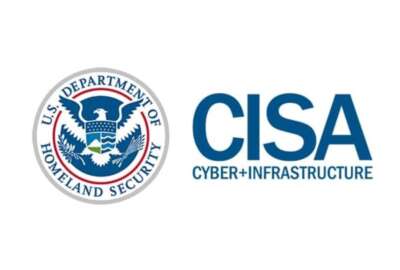Former financial counselor faces federal charges for allegedly defrauding gold star family members
In today's Federal Newscast: A former Army financial counselor faces federal charges for allegedly defrauding gold star family members. Joint Chief Chairman Mark...
- A former U.S. Army financial counselor faces federal charges for allegedly defrauding gold star family members. The Securities and Exchange Commission is accusing Caz Craffy of unauthorized trading and recommending excessive trades and higher risk strategies that did not match customers’ investment profiles. Some of the trading included life insurance and survivor benefits. In one instance, the complaint says Craffy misappropriated $50,000 from the account of a minor, whose parent had died on active duty.(SEC charges former army financial counselor who defrauded gold star family members - Securities and Exchange Commission)
- There is an official pick to be the U.S. military’s top enlisted servicemember. Sgt. Maj. Troy Black will be the next senior enlisted adviser to the chairman of the Joint Chiefs of Staff. Joint Chief Chairman Mark Milley announced the selection on Friday. Black currently serves as the sergeant major of the Marine Corps — that service’s top enlisted position. He will replace career airman Ramón Colón-López, who has served in the senior enlisted adviser role since 2019. A change-of-responsibility ceremony is scheduled for November.(Senior Enlisted Advisor to the Chairman Announcement - Department of Defense)
- Preparing for a new kind of warfare, the Army is in search of a technology boost. The Army has seen enough from the Ukraine war and is looking for software to prepare it for the future. A new request for information is seeking applications that will provide soldiers and leaders with real-time threat forecasting information using cutting-edge technologies. The Army is asking industry for feedback on how it would develop a networked all-domain system that can handle massive data inputs for all-sources, and process the information using artificial intelligence and machine-learning tools. And that software should run on a standard laptop, if possible. Responses to the RFI are due July 20.(Real-time threat forecast RFI - SAM.gov)
- More than a dozen House lawmakers are calling on the Postal Service to protect its workforce from extreme heat. House Oversight and Accountability Committee Ranking Member Jamie Raskin (D-Md.) is leading lawmakers who are looking for answers, after a letter carrier in Texas died while delivering mail in a recent heat wave. Lawmakers are asking Postmaster General Louis DeJoy about USPS possibly allowing employees to start their workdays earlier in the day, to reduce time spent working in the heat. Lawmakers are also asking USPS about plans to address aging delivery vehicles that don’t have air conditioning.(Letter to Postmaster General Louis DeJoy - House Oversight and Accountability Committee)
- The Cybersecurity and Infrastructure Security Agency is gaining better visibility into cyber risks on agency systems. Now a majority and still rising, 55% of civilian agencies are automatically reporting data into CISA’s Continuous Diagnostics and Mitigation system. CISA said it has vastly improved visibility into cyber risks on federal agency networks compared to just a few years ago. And the agency also expects more agencies to begin adopting its shared services through the end of fiscal 2023. Those include the Mobile Application Vetting service, the Vulnerability Disclosure Policy Platform, and the Secure Cloud Business Applications service.(CISA reports progress on gaining automated visibility into federal networks - Federal News Network)
- An IRS panel is urging the agency to consider alternatives before running its own online tax-filing platform. An advisory group of tax experts is telling the IRS to better promote an existing program that allows taxpayers to file-for-free with private tax preparers, before it scales up a competing service. The Electronic Tax Administration Advisory Committee has found the IRS does not have a budget to market the current Free File program to the public. It recommends the IRS start there, before scaling up its own in-house Direct File system. The IRS estimates the Direct File system will cost tens, if not hundreds, of millions of dollars a year to operate.(IRS panel urges agency to promote Free File program before advancing its own alternative - Federal News Network)
- One of the federal government's leading research agencies has a draft plan to make its data and papers even more accessible. The National Institute of Standards and Technology released an updated draft plan for providing public access to results of federally funded research. NIST is seeking public comments on its draft plan, which the Office of Management and Budget and Office of Science and Technology Policy already have reviewed. NIST has had an open access plan since 2015, but this one further meets the goals of the Office of Science and Technology Policy's August 2022 memo, calling for a renewed effort to make federally funded research accessible. Comments on NIST's draft plan are due by August 14.
- The head of the Transportation Security Administration said his agency must adapt to rapidly changing transportation technologies and evolving threats. TSA Administrator David Pekoske is setting out 20 strategic objectives for the agency in his latest “administrator’s intent” guidance. Some of the objectives include improving recruitment and hiring processes, developing better security screening technologies, and improving TSA’s ability to forecast cybersecurity risks and other emerging threats.
- A government backed-investment fund that provides money for early-stage technology startups hit a milestone in May, by obligating all $15 million of its funds for the year. National Security Innovation Capital (NSIC) completed investments for the year with the Spaceport Company, a firm that designs platforms for sea-based rocket launches. NSIC, which operates as part of the Defense Innovation Unit, started funding hardware companies three years ago. The fund, which currently has investments in 17 companies, is intended to promote a secure domestic supply of hardware technology.
(National Security Innovation Capital meets investment milestone for the year - Federal News Network)
Copyright © 2025 Federal News Network. All rights reserved. This website is not intended for users located within the European Economic Area.
Peter Musurlian
Peter Musurlian is a producer at Federal News Network.
Follow @PMusurlianWFED






